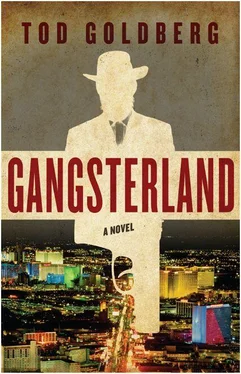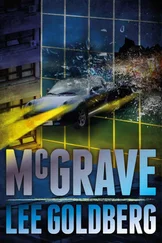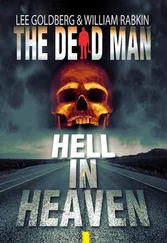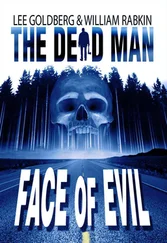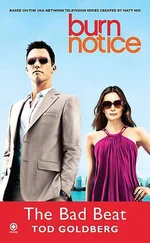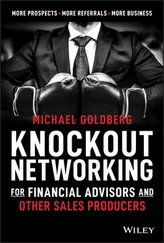Still, Jeff had spent enough time visiting Stateville in the past several years to know that any number of nefarious deeds were possible in that shit hole. They’d cleaned up some in the last few years, though not so much that a death connected to the Family, or the Gangster 2–6 for that matter, might occasionally go uninvestigated if the price was right. . which is what the absence of paperwork on Neto Espinoza confirmed. He was a disposable person in a family of criminals. The kind of person Dennis Tryon probably didn’t give one shit about.
Jeff took out his cell phone and tried calling Paul Bruno. He’d spoken to him twice after their visit, once to tell him that Neto was indeed dead, and once to ask him if he had any contacts at the slaughterhouses still, see if anyone might give him any information on anything that seemed shady in the last several months. And then. . nothing. It was general policy not to leave messages on a CI’s voicemail, so at first Jeff just called and hung up, then eventually left a message anyway.
“Shit,” Jeff said, and he closed his phone.
“Nothing?” Matthew said.
“Says his voicemail is full,” Jeff said.
They walked a few more yards in silence, the crunch of ice beneath their boots the only soundtrack to what both were coming to realize.
“Tonight,” Jeff said, “we’re going to have a conversation with Fat Monte. You ready for that?”
“I was ready a month ago,” Matthew said.
A horn honked, and Jeff turned to see a black Dept. of Corrections Cutlass, the official car of any decent prison, coming up behind them. Jeff and Matthew stepped off the road to let the car pass, but instead it pulled to a stop, and Dennis Tryon stepped out.
Dennis was a few years older than Jeff and had worked in criminal justice since he was eighteen. Jeff remembered that. It was one of those things Dennis used to say when they were in school, the ultimate trump card, that he’d been working with bad guys since he was a teenager. Now, though, he had the paunch of a man in his sixties and the sagging neck to match, even though he wasn’t yet fifty. He wore navy-blue wool pants and a blue-and-white striped shirt that bulged out over his belt, a red tie, a blue sport coat. Jeff liked Dennis a decade ago, though he wasn’t sure he still did.
“Shouldn’t you be behind a desk somewhere?” Jeff said.
“You didn’t come by the office to say hello,” Dennis said.
Jeff wagged the envelope containing Neto Espinoza’s report in front of Dennis’s face. “I got what I came for.”
“Did you know you’re on paid administrative leave?” Dennis said.
“I was aware of that, yes,” Jeff said.
“You failed to mention that when you asked for Neto Espinoza’s death records.”
“I didn’t think it was important,” Jeff said.
“Of course not,” Dennis said. A shiver went through him and he pulled his sport coat closed. He couldn’t button it over his gut, so he just held the two sides together. “Christ, it’s cold as hell out here. I hear Chicago is socked in. That right?”
“There something you want to talk about, Dennis?” Jeff asked.
“I called your office,” Dennis said, “and they said you are on an extended vacation. Stateville isn’t the kind of place most people visit while on vacation. Even fewer people do independent investigations into the natural death of drug mules.” He paused and looked at Matthew, who was watching the whole interaction with something close to amusement. “And you,” Dennis said to Matthew, “who are you, exactly?”
“Just a friend,” Matthew said.
“I’m sure,” Dennis said. Another black Cutlass pulled down the road, and Dennis straightened up, tried to look dignified. The Cutlass slowed as it went by, so Dennis gave it a wave, as if to let the driver know Jeff and Matthew weren’t escapees. “Jeff always was great about making friends,” Dennis said, once the car passed. “You keep in touch with anyone else from school?”
Jeff didn’t keep in touch with many people. That he kept in touch with Dennis Tryon had mostly to do with their infrequent meetings at the prison, though Jeff had no delusions that Dennis was simply one of the good guys or one of the bad guys. You work in prison management, those roles are generally pretty fungible, which made everything about Dennis questionable. He’d helped Jeff on a few occasions, Jeff had helped him on a few occasions, and even those interactions were strictly business, albeit salted with periodic attempts at familiarity, Dennis always going on about his wife, Lisa, who worked at the zoo in Chicago, and his son Devin, who had some developmental problem, or showing Jeff photos from his hunting trip; Jeff promising that the next time he came out, they’d get a beer in Crest Hill afterward, really catch up, that sort of thing.
Not exactly a friendship. More like two people with a tacit understanding that they should treat each other better than common strangers. The debt you pay for shared experiences , Jeff thought.
“No,” Jeff said. “I don’t want to ruin the possibility of chance reunions.”
Dennis laughed. “See?” he said to Matthew. “Jeff has friends everywhere.” He walked back to the Cutlass and popped open the trunk, then came back holding a bulging manila envelope sealed with packing tape. “You left this,” Dennis said, and he handed the envelope to Jeff.
“If whatever is in this envelope is bad enough that we gotta go through all of this,” Jeff said, “then I’m not sure I want you to give it to me.”
Dennis said, “I read about that Family business in the paper, figured that was your people. I probably should have called you, but I thought you probably didn’t need to hear from anyone else.”
“I didn’t hear from anybody,” Jeff said.
“That’s the problem with this business,” Dennis said. “Everyone’s too damn proud.” He patted Jeff on the shoulder.
Dennis Tryon got back into his Cutlass. He pulled back up the street, made a U-turn, and came to a stop across from where Jeff and Matthew were still standing. He rolled down his window, motioned Jeff over.
“Yeah?” Jeff said.
“Listen,” Dennis said. “Don’t get yourself killed. No one would come to your funeral for fear of being recognized.” He extended his hand out the window, but Jeff didn’t take it right away. “Shake my hand,” Dennis said.
“I don’t know if I should,” Jeff said.
“Thing is, Jeff, it’s probably no worse than what you expect.”
“That’s the problem I’m having,” Jeff said. “You didn’t need to give me this stuff. I already knew something was crooked.”
“Well,” Dennis said, “be that as it may. I see some stuff here that makes me sick. But I’ve got five more years until I can take early retirement. When that day comes, there’s gonna be no second thoughts, that much I can assure you.”
“So maybe you should hold on to this,” Jeff said, “in case you need to blackmail someone.”
“I won’t lie. I thought about that,” he said. “I reckon that makes me no better than the animals I’ve been tending.” Dennis took a balled Kleenex from his pocket and blew his nose. “Whatever you do with that,” Dennis pointed at the envelope, “just know that maybe five years ago that boy would have been a chew toy in this place.”
“All I’m going to do is read it,” Jeff said.
“Well, good, then,” Dennis said. “You think you’ll get back into the bureau?”
“No,” Jeff said. “Not now, anyway. So don’t worry, I’m not here to cause any problems for you.”
“I know you’re not,” Dennis said. “I didn’t say anything to your office, you should know.”
“It doesn’t matter, really,” Jeff said. He paused and thought about the steps that had brought him to this moment, the litany of mistakes that he accumulated trying to be the good guy. “Just tell me I’m not going to find out Ronnie Cupertine is an honorary guard or something.”
Читать дальше
